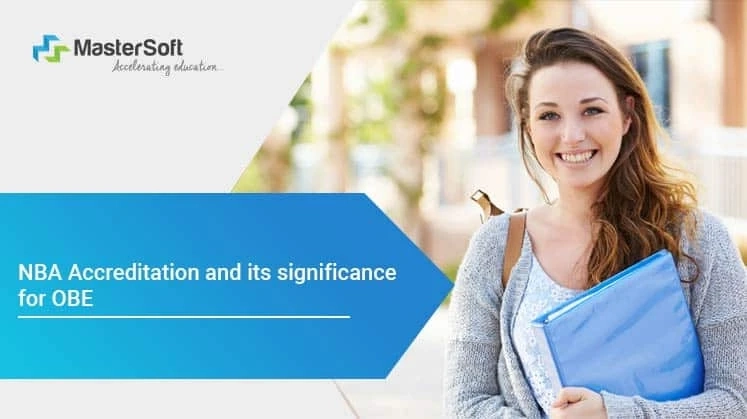‘’Top 10 engineering colleges in the country’’ or ‘’top architecture colleges’’ are examples of keywords that students often type in search engines to find appropriate institutes. They can find lists of colleges on different blogs and websites with elaborate descriptions of the courses and infrastructure. But is that enough? Online posts about higher educational institutes highlighting the academic and non-academic features may or may not be trustworthy.
On the contrary, colleges that have gone through multi-step quality checks regarding their academic and organizational processes succeed in attaining NBA accreditation for their courses. Consequently, this ensures that the course and lesson delivery are in sync with specific standards, enabling teachers to facilitate dynamic learning opportunities.
However, that is not the only reason why NBA-accredited engineering and technical colleges’ reputation has grown with time. Let us find out other associated reasons:
- Assured Quality Education
All institutes claim that they provide excellent educational facilities, including in-demand courses, faculty with years of experience and an appropriate student support system. Yet, when it comes to executing mandatory duties, some of them fail, causing students to face unprecedented issues.
However, engineering colleges with accredited courses must conduct quality checks on a regular basis; for instance, the institute needs to ensure there are no inconsistencies in administrative activities which could hinder other institutional functions. Likewise, instructional approaches or pedagogies are one of the major priorities that take precedence.
Besides, teachers implement different techniques in the classroom, such as outcome-based education, to establish a unique teaching and learning system. Before the term start, teachers specify the learning objectives, enabling students to keep track of their academic goals. As a result, they are motivated and proceed according to a plan, and teachers guide them along the way.
Moreover, institutions receive feedback from the NBA accreditation committee, helping them improve their courses and methodologies.
- Boosts Student Achievement
A vital part of institutional success is overall academic performance; the number of graduates passing out with high scores is often a highlight. Meanwhile, well-structured strategy and quality assurance initiatives help to maintain academic goals. Furthermore, when institutes and teachers work together to build a dynamic educational system, it benefits students the most.
In addition, one of the best advantages of incorporating OBE is that it allows the establishment of an excellent evaluation method. For instance, teachers can analyze students based on three factors:
- Knowledge - The subject and the content being taught are not just for the sake of imparting information; the aim is to instill knowledge of core concepts in such a way that students can apply them in practical situations.
- Skills - Subject knowledge must be embedded with skills because engineering and other technical courses are practically intense courses. Hence, the teaching and assessment methods evaluate the skills of students.
- Attitude- Educational methodologies are ineffective if they don’t cater to student’s comprehensive development. So, the specific pedagogical approach helps to assess their behavioural aspects and how it contributes to learning outcomes.
- Helps in SWOT analysis
How can institutes ensure academic success? This is a common question that bears elaborate discussions during staff and faculty meetings; academic success coincides with student performance. The NBA accreditation process clearly states the set of criteria per which institutes need to facilitate high-quality education.
Besides, identifying the major problem areas and strengths of students is an ideal way to improve student performance. And that is exactly what SWOT analysis helps teachers to do.
- Strength - Instructors implement specific in-class activities that help them identify the individual strengths of students.
- Weakness - They also implement methodologies that help students address their shortcomings, enabling teachers to use measures to help overcome issues.
- Opportunities - The institute conducts various initiatives, including partnerships with research facilities, industry experts, academicians, and institutes. As a result, students get to have practical experiences.
- Threats - Threats deal with potential issues that students face currently or might face in the future; therefore, accordingly, they prepare them by instilling appropriate skills and information.
- Funding Opportunities for Institutions
Discontinuation of research activities while the faculty and students are in the middle of a major breakthrough, is a common complaint and often causes chaos. Also, insufficient funding is often a roadblock to academic development; on the contrary, when an institute gets NBA certification, it helps them get the necessary financial support from funding agencies. As a result, they can expand and add other necessary departments; they can also open research and development facilities, enabling students to gather relevant knowledge. ]
For example, NBA-accredited colleges are eligible to apply for various AICTE funds, such as MODROBS, R&D, and TAPTEC.
- Improved Academic Performance
When institutes conduct programs verified by NBA accreditation, it helps faculty boost student performance. Furthermore, they use innovative instructional approaches that help them track students’ progress and resolve recurring issues. In addition, they are able to develop high-end curricula and an enriching learning environment.
Consequently, students get great exposure through practical activities and timely guidance, helping them gain the necessary skills.
In Conclusion,
NBA accreditation helps institutes gain an extra edge and are able to elevate themselves in competition; the accreditation enables them to ensure quality education. Simultaneously, it helps students choose the best college or institute that adds value to their academic journeys.



